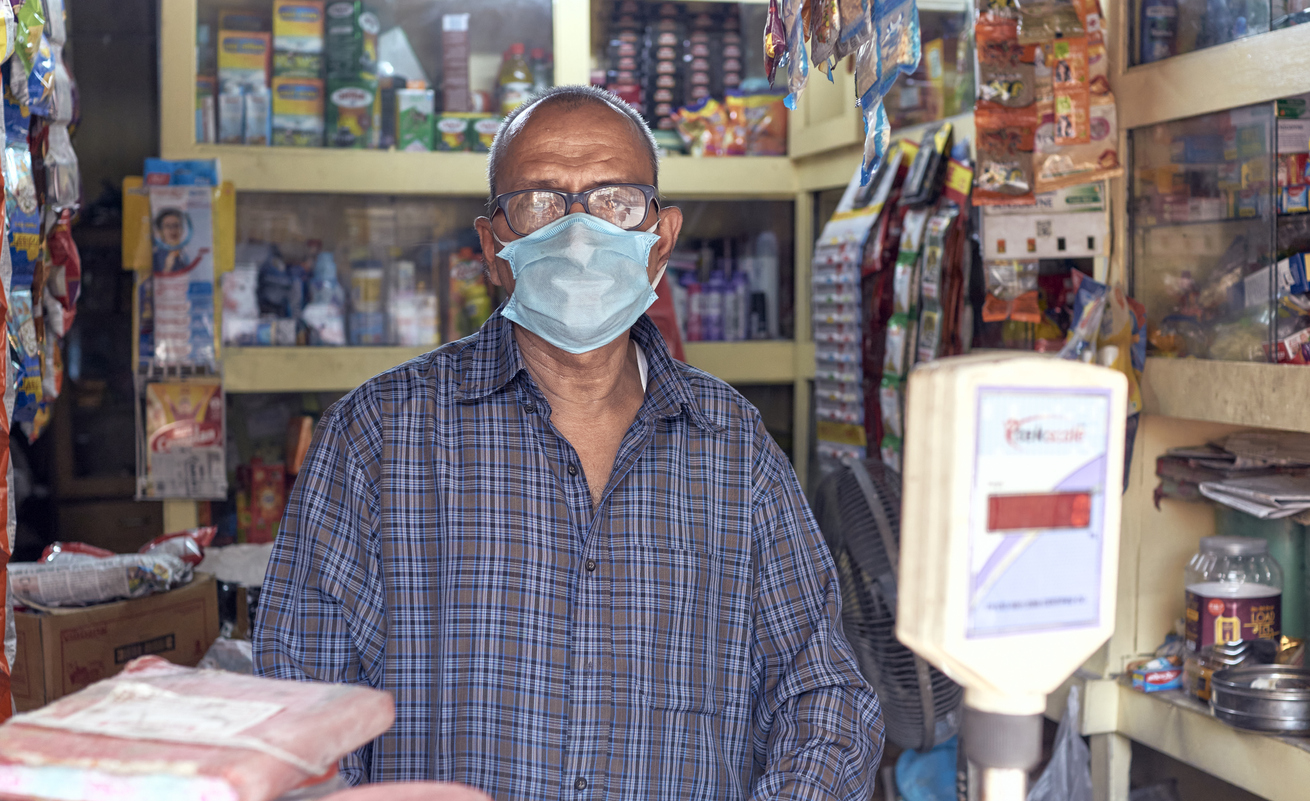
Once badly hit, local kirana shops double profits amid lockdown
The nationwide lockdown in view of the coronavirus outbreak has turned out to be positive for the local local kirana shops which are witnessing a surge in the sale of essential items with some even finding it difficult to keep up with the rising demand.

The nationwide lockdown in view of the coronavirus outbreak has turned out to be positive for the local local kirana shops which are witnessing a surge in the sale of essential items with some even finding it difficult to keep up with the rising demand.
With online delivery becoming a challenge during lockdown, some shopkeepers even say their sales have doubled in the last one month.
These small shops were worst hit by big malls and e-retailers in the last few years but ever since lockdown was imposed in view of the COVID-19 outbreak their sales have increased.
India is currently under the biggest lockdown with around 1.3 billion people asked to stay at home and observe social distancing to combat the deadly virus, which has claimed 308 lives and infected more than 9,000 people in the country.
Related news: Domestic passenger vehicle sales down 51% in March: Industry body
The government has imposed strict directives of restricting movement of people. Shops supplying essential items like grocery, medicines have been exempted from the lockdown.
Rajesh Rajora, a grocery shop owner at Noida sector 51, said the sales have increased to the extent that he had to call his supplier twice for refilling essentials in the last one month.
Earlier, it would be in months that refilling would be needed. He said within hours of opening his shop most items sell off.
“Ever since the lockdown, people want to buy groceries only after seeing it with their own eyes. With online shopping, there has been uncertainty and frequent cancellation due to which many people prefer to buy grocery from these small shops,” he said.
Another grocery shop owner Vikas Saini in Mayur Vihar-1 says the kind of rush his shop sees has not been witnessed for years.
“People from all walks of life come to buy essential items. Even youngsters who were especially dependent upon e-retailers are coming to my shops,” said Saini, whose sales have doubled in the last few weeks.
Related news: No crops if lockdown extended: Karnataka farmers wary of distress
But Saini asserts that he ensures that people maintain social distancing while visiting his shop.
“I have chalked out circles and people stand in queues outside the shop. I am exercising all precautions,” he said.
Kumar Ganesh, one of Saini’s customers standing in one such chalked circle, said the finds these shops more reliable than online shopping in the present times.
“Initially, I tried ordering online but my orders were repeatedly cancelled due to logistical issues. So I resorted to buying from the local grocery stores only,” he said.
Another kirana shop owner Hari Singh said he was on the verge of shutting own his business this year but lockdown gave him a fresh lease of life.
“I know many other businesses are going downhill but my business has been booming since the lockdown. I know I cannot offer the kind of discounts the online retailers offer but at least I am reliable,” he said.
Related news: COVID-19: Odd-even rule to be in force in Delhi’s wholesale markets
But these shopkeepers say now they are finding it difficult to keep up with the demand.
Singh said he had reduced procurement of items from his supplier and now he is not able to meet the increasing demand.
“The supplier also does not have enough supplies according to our demand. Secondly, issues in procurement of items is another challenge faced by us due to the lockdown,” he said.
Saini said this improvement is short-lived as once things are back on track most people would still prefer buying from online portals due to the discounts offered by them and the convenience of getting the products at the desired time at their doorsteps.
“We know we wouldn’t be able to keep up. But for this crucial period it was a matter of great satisfaction for me to stay relevant,” said Saini.
(With inputs from agencies)

